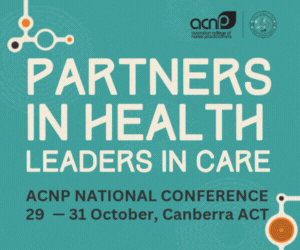A recent Lancet Report (Watts et al. 2018) warned, “the nature and scale of the response to climate change will be the determining factor in shaping the health of nations for centuries to come”.
Our research team of clinicians and academics at Monash’s Faculty of Medicine, Nursing and Health Sciences and the Monash Sustainable Development Institute received funding to explore how to best teach our future health workforce about climate change (CC) and environmental sustainability.
Individual and population health is inextricably linked with the health of the environment, making climate change the greatest global threat to human health. Climate change affects health through extreme events such as flooding, storms, wildfires and extreme temperatures.
“Climate change amplifies chronic and infectious diseases we already suffer from, such as the impacts of heat on heart disease, and changing rainfall patterns on waterborne illnesses” (Macmillan 2019).
In 2019, universities are educating the last generation of health profession students that can potentially mitigate climate change.
However, current practicing healthcare professionals can also start championing change and have an impact through developing policies and protocols to assist with waste minimisation, and promote health and environmental sustainability.
Health professionals need to acknowledge and accept responsibility for healthcare delivery’s impact on the environment.
A step towards this goal is the ANMF’s inclusion of environmental impact assessment criteria in accreditation processes.
Our current research project aims to explore factors that influence the capacity to teach environmental sustainability and climate change across 14 health profession courses at Monash University.
The aim is to generate a set of actionable recommendations for meaningful application of an ‘environmental sustainability’ lens to Monash University’s current health professions curriculum.
A recent article titled 12 tips for teaching environmental sustainability to health professionals suggests climate change is affecting population health today, and we need to prepare for adaptation whilst also engaging in mitigation and advocacy activities (Schwerdtle et al. 2019).
There is strong rationale for involving health professionals in these three key areas: Adaptation that relates to assisting patients and communities address unavoidable health impacts (Schwerdtle et al. 2019); Mitigation that will prevent further health impacts by limiting further climate change and environmental degradation (Schwerdtle et al. 2019) and Advocacy that works towards a low carbon, low waste healthcare system and a focus on sustainable healthcare education.
So, what can current healthcare professionals do now to help tackle climate change?
1 Recognise and become socially aware that health impacts of climate change are happening now.
For example, displacement of populations, waterborne disease spread and fire related injuries.
2 Prepare to provide healthcare that is appropriate to treat and manage these health impacts.
3 Identify vulnerable communities and proactively manage climate-related illnesses.
4 Build resilient healthcare systems and infrastructure to respond to impacts of climate change.
For example, increased temperatures and heatwaves resulting in heat stroke and mortality among older people.
5 Take responsibility of the healthcare sector’s contribution to climate change and champion action to change current behaviours and practices.
For example, sustainable procurement, minimising waste generation and disposal.
Nurses and midwives play a central role in being champions of change to ensure that the wider health workforce is informed and equipped to practice sustainably.
Authors
Rosie Wotherspoon – Lecturer, Nursing & Midwifery, Monash University
James Bonnamy – Lecturer, Nursing & Midwifery, Monash University
Gabrielle Brand – Associate Professor, Nursing & Midwifery, Monash University








